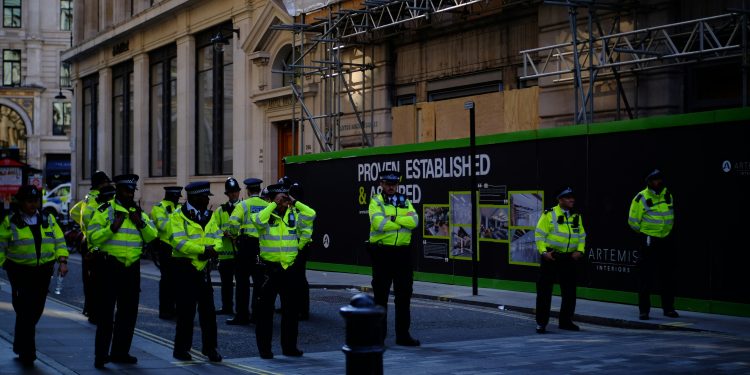British police forces have received updated guidance permitting them to release suspects’ ethnicity and nationality details in high-profile cases where misinformation risks sparking public unrest.
The National Police Chiefs’ Council (NPCC) and College of Policing jointly issued the new protocols following last year’s violent riots in Southport, where false online claims about an immigrant suspect’s background triggered days of chaos after a triple child murder.
Under the revised policy, officers can now share demographic information when “necessary to reduce risks to public safety” or to counter rapidly spreading false narratives. Deputy Chief Constable Sam de Reya emphasized the need for policing to adapt to the social media age, stating: “Disinformation takes hold in a vacuum—it’s good police work to fill that vacuum with facts.” The Home Office has pledged cooperation, authorizing immigration status disclosures when justified.

The policy shift comes amid mounting pressure from Reform UK and other critics accusing police of excessive secrecy. Tensions peaked recently when conflicting accounts emerged about suspects in an alleged rape case involving a 12-year-old in Hertfordshire—with local Reform politicians claiming the perpetrators were asylum seekers while police cited trial fairness concerns for withholding details. Such incidents have fueled anti-immigration protests and eroded trust in law enforcement transparency.
How Misinformation Sparked Nationwide Unrest
Last summer’s Southport violence exemplified the dangers of unverified online claims. Within hours of the knife attack that killed three children, false assertions that the teenage suspect was an “Islamist migrant” went viral—despite police confirming the arrested individual was a British citizen. The riots that followed caused millions in damage and required unprecedented police deployments, demonstrating how demographic misinformation can rapidly escalate into civil disorder.
Civil Liberties Groups Warn of Racial Profiling Risks
While welcoming measures to combat misinformation, organizations including Liberty and the Runnymede Trust have expressed concerns about potential racial profiling consequences. Critics argue the policy might disproportionately target minority communities and undermine the principle of innocent until proven guilty. Police leaders counter that disclosures will remain case-specific, requiring senior officer approval and clear public interest justification.
Why It Matters
The NPCC guidelines represent a fundamental shift in British policing’s approach to media relations, acknowledging both the speed of digital misinformation and growing public demand for transparency.
Forces are now training officers in “strategic disclosure” techniques and sharing enough factual information to preempt speculation while avoiding prejudicial commentary that could compromise judicial proceedings.

















